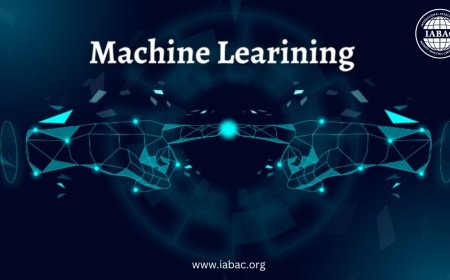Skills Required for Machine Learning
Mathematics, statistics, programming, data analysis, problem-solving, critical thinking, and domain knowledge are essential skills for machine learning.

In the dynamic field of machine learning, acquiring the right skills is paramount for success. Machine learning powers innovations across industries, from healthcare to finance. This outline highlights key skills essential for navigating this landscape, including mathematical foundations, programming proficiency, data handling, model selection, deep learning expertise, deployment strategies, domain knowledge, effective communication, and the commitment to continuous learning.
Importance of acquiring the right skills in the field
Acquiring the right skills in the field of machine learning is of paramount importance due to several compelling reasons:
-
Competitive Advantage: As the demand for machine learning professionals increases, possessing the right skills sets you apart in a competitive job market. Employers seek individuals who can immediately contribute to projects and drive innovation.
-
Innovation Catalyst: Proficiency in machine learning skills empowers you to innovate and develop solutions that can revolutionize industries. By leveraging data-driven insights and predictive capabilities, you can contribute to breakthroughs and advancements.
-
Problem Solving: Machine learning skills enable you to approach complex problems with structured methodologies. You can analyze large datasets, identify patterns, and derive meaningful conclusions that traditional methods might overlook.
-
Career Opportunities: The field of machine learning offers a wide array of career opportunities, from data scientists and machine learning engineers to AI researchers and data analysts. Acquiring the right skills opens doors to diverse and high-paying roles.
-
Adaptability: The rapid evolution of technology requires professionals to stay current. Acquiring the right skills equips you with the ability to adapt to new tools, techniques, and methodologies, ensuring your career longevity.
-
Impactful Decision-Making: Machine learning skills empower you to make data-driven decisions across domains. From predicting market trends to optimizing resource allocation, your skills enhance the quality and precision of your choices.
-
Cross-Disciplinary Collaboration: Machine learning skills facilitate collaboration with professionals from diverse fields. Your ability to understand and communicate insights drawn from data bridges gaps between technical and non-technical teams.
Fundamental Concepts and Theoretical Foundations
To excel in machine learning, a strong grasp of fundamental concepts and theoretical underpinnings is essential. This knowledge provides the bedrock upon which successful machine learning practices are built.
Mathematical Foundations: A solid understanding of fundamental mathematical concepts is vital. Linear algebra forms the basis for data representation and transformation, enabling you to work with vectors, matrices, and linear transformations. Calculus is necessary for understanding optimization algorithms that underlie model training and tuning. Probability and statistics provide the framework for reasoning about uncertainty and making informed decisions from data.
Core Machine Learning Concepts: Delving into core machine learning concepts is crucial for building effective models. Understanding the distinctions between supervised, unsupervised, and reinforcement learning is key to selecting appropriate algorithms for different tasks. The concept of the bias-variance trade-off helps you strike the right balance between model complexity and generalization. Recognizing the challenges of overfitting and underfitting helps ensure models perform well on both training and unseen data. Knowledge of regularization techniques aids in preventing overfitting by adding constraints to model parameters.
This foundation not only equips you to comprehend the inner workings of machine learning algorithms but also enables you to innovate and tailor these algorithms to suit specific problem domains.
Programming and Technical Skills
Proficiency in Programming Languages
-
Python: Widely embraced in the machine learning community for its versatility, extensive libraries, and ease of use.
-
R: Valuable for specialized statistical analyses and data exploration.
Data Manipulation and Analysis Libraries
-
NumPy and Pandas: Essential for efficient data handling, manipulation, and transformation.
-
Matplotlib and Seaborn: Enable creation of clear and informative data visualizations.
Familiarity with Machine Learning Libraries
-
Scikit-Learn: Offers a comprehensive range of tools for implementing various machine learning algorithms and techniques.
-
TensorFlow or PyTorch: Deep learning frameworks for building, training, and deploying neural networks.
Version Control for Collaborative Development
-
Git: Proficiency in using version control tools like Git facilitates collaboration, tracks code changes, and ensures reproducibility.
Mastering these programming and technical skills equips you with the essential tools to effectively manipulate data, create visualizations, implement machine learning algorithms, and collaborate on development projects.
Data Preprocessing and Feature Engineering
Data preprocessing and feature engineering are crucial stages in the machine learning pipeline that lay the foundation for accurate and effective model development. Data collected for analysis is often messy, incomplete, or unstructured, which can negatively impact model performance. Preprocessing involves cleaning, transforming, and organizing the data to ensure its quality and suitability for analysis. This includes handling missing values, addressing outliers, and normalizing features.
Feature engineering, on the other hand, focuses on creating new features or transforming existing ones to provide the model with relevant and informative input. Well-engineered features can significantly enhance a model's ability to capture underlying patterns in the data. Techniques range from encoding categorical variables and scaling numerical features to creating interaction terms and performing dimensionality reduction. The success of a machine learning model heavily relies on these preprocessing and feature engineering steps, as they directly impact the quality of input data and the model's ability to generalize effectively.
Model Selection and Evaluation
The process of model selection and evaluation is crucial to ensure the effectiveness and reliability of the developed models. Selecting the right model architecture and algorithm for a given problem is a strategic decision that directly impacts the model's performance. This involves considering factors such as the dataset size, complexity, and specific problem characteristics. Once a model is trained, thorough evaluation using appropriate metrics is essential to gauge its performance and generalization ability. Techniques like cross-validation help assess how well the model will perform on unseen data, guarding against overfitting or underfitting. Additionally, hyperparameter tuning fine-tunes the model's settings, enhancing its predictive capabilities. Overall, an informed approach to model selection and diligent evaluation are pivotal in building successful and robust machine learning solutions.
Deep Learning Skills
Deep learning, a subset of machine learning, focuses on training complex neural networks to perform tasks with exceptional accuracy. To excel in this realm, several key skills are indispensable:
-
Neural Network Architecture and Components: Deep learning proficiency hinges on understanding the intricacies of neural network structures. This encompasses grasping the roles of layers such as input, hidden, and output layers, as well as the variety of activation functions that drive information flow through the network.
-
Deep Learning Frameworks (TensorFlow, PyTorch): Mastery of popular deep learning frameworks like TensorFlow and PyTorch is essential. These tools provide the infrastructure to construct, train, and evaluate intricate neural networks efficiently, fostering innovation and rapid development.
-
Transfer Learning and Pre-trained Models: Leveraging transfer learning and pre-trained models expedites model development. The ability to fine-tune existing models on new tasks not only saves time but also capitalizes on the knowledge encoded in previously trained networks.
-
Handling Large Datasets and GPU Utilization: Profound expertise in managing sizable datasets is crucial. Deep learning models often require substantial amounts of data for effective training. Additionally, understanding how to harness the power of graphics processing units (GPUs) accelerates training times, enabling experimentation and model refinement at a faster pace.
Combining these skills empowers deep learning practitioners to tackle complex problems, innovate novel solutions, and contribute to the ever-evolving landscape of artificial intelligence.
Deployment and Productionization
Deployment and productionization of machine learning models is a critical phase in turning insights into real-world impact. This process involves converting trained models into practical applications that can be seamlessly integrated into existing systems. Containerization, often achieved through platforms like Docker, ensures consistency and reproducibility across different environments. Cloud platforms such as AWS, Azure, and GCP offer scalable and cost-effective solutions for deploying models, allowing them to handle varying workloads efficiently. Monitoring model performance in a production environment is vital to ensure ongoing accuracy and effectiveness. Regular tracking of metrics, detecting anomalies, and swift corrective actions maintain the model's reliability and alignment with business goals, thereby maximizing the value of machine learning investments.
Domain Knowledge and Problem Solving
Domain knowledge and problem-solving skills are integral to the success of machine learning endeavors. While proficiency in algorithms and programming is crucial, understanding the specific domain of application is equally vital. Domain knowledge allows practitioners to identify relevant features, interpret results, and make informed decisions. Whether it's healthcare, finance, or any other field, grasping the nuances and challenges of that domain enhances the accuracy and applicability of machine learning models. Additionally, effective problem-solving involves translating real-world issues into well-defined machine learning tasks, iteratively refining models, and addressing unexpected obstacles. The synergy between domain expertise and problem-solving capabilities forms a strong foundation for developing effective and meaningful machine learning solutions.
Communication and Collaboration
Communication and collaboration are pivotal skills in the field of machine learning, ensuring the effective utilization and integration of advanced techniques and solutions.
-
Explaining complex concepts to non-technical stakeholders: Effective communication is essential to bridge the gap between technical expertise and business understanding. Being able to articulate complex machine learning concepts in a clear and understandable manner to non-technical stakeholders, such as managers, clients, or end-users, facilitates informed decision-making and alignment of goals.
-
Collaborating in cross-functional teams: Machine learning projects often involve professionals from diverse backgrounds, including data scientists, engineers, designers, and domain experts. Collaborating seamlessly in cross-functional teams fosters a holistic approach to problem-solving, combining technical expertise with domain-specific knowledge to deliver comprehensive and relevant solutions.
-
Documenting code, models, and processes: Proper documentation is crucial for maintaining transparency, reproducibility, and knowledge sharing. Documenting code, models, and processes ensures that team members can understand, replicate, and build upon the work of others. Clear documentation simplifies troubleshooting, facilitates onboarding of new team members, and supports the long-term sustainability of projects.
-
Participating in knowledge sharing within the ML community: The machine learning community is vibrant and continuously evolving. Active participation through online forums, conferences, workshops, and open-source projects helps you stay updated with the latest advancements, exchange ideas, and learn from peers. Contributing to the community not only enhances your own learning but also enriches the collective knowledge base.
In essence, strong communication and collaboration skills are indispensable for translating complex technical concepts into actionable insights, fostering effective teamwork, ensuring the reproducibility of work, and remaining engaged in the dynamic machine learning community.
Continuous Learning and Adaptation
Continuous learning and adaptation are indispensable in the field of machine learning, as the landscape evolves rapidly. This commitment ensures that professionals remain at the forefront of innovation and maintain their expertise:
-
Staying updated with the latest research and trends: Regularly engaging with research papers, articles, and blogs keeps you informed about cutting-edge techniques, breakthroughs, and emerging trends in machine learning.
-
Taking online courses, attending workshops, and conferences: Online platforms offer courses that cover new methodologies, tools, and concepts. Attending workshops and conferences provides opportunities for networking, skill sharing, and exposure to fresh perspectives.
-
Participating in Kaggle competitions and open-source projects: Engaging in Kaggle competitions allows you to tackle real-world problems, learn from diverse approaches, and benchmark your skills. Contributing to open-source projects fosters collaboration and showcases your abilities.
-
Adapting to evolving technologies and methodologies: The machine learning field is characterized by rapid advancements. Being open to adopting new technologies and methodologies is essential for staying relevant and effective in your work.
By embracing continuous learning and adaptation, machine learning practitioners can stay adaptable, innovative, and well-equipped to tackle the challenges and opportunities that arise in this dynamic field.
Mastering the essential skills outlined in machine learning is crucial for success in this rapidly evolving field. The interdisciplinary nature of machine learning underscores its integration with mathematics, programming, domain knowledge, and effective communication. It's imperative to recognize that continuous skill development is the key to staying ahead in this dynamic landscape. Embrace the journey of learning, adapt to emerging trends, and cultivate a mindset of growth to thrive in the exciting realm of machine learning.












































